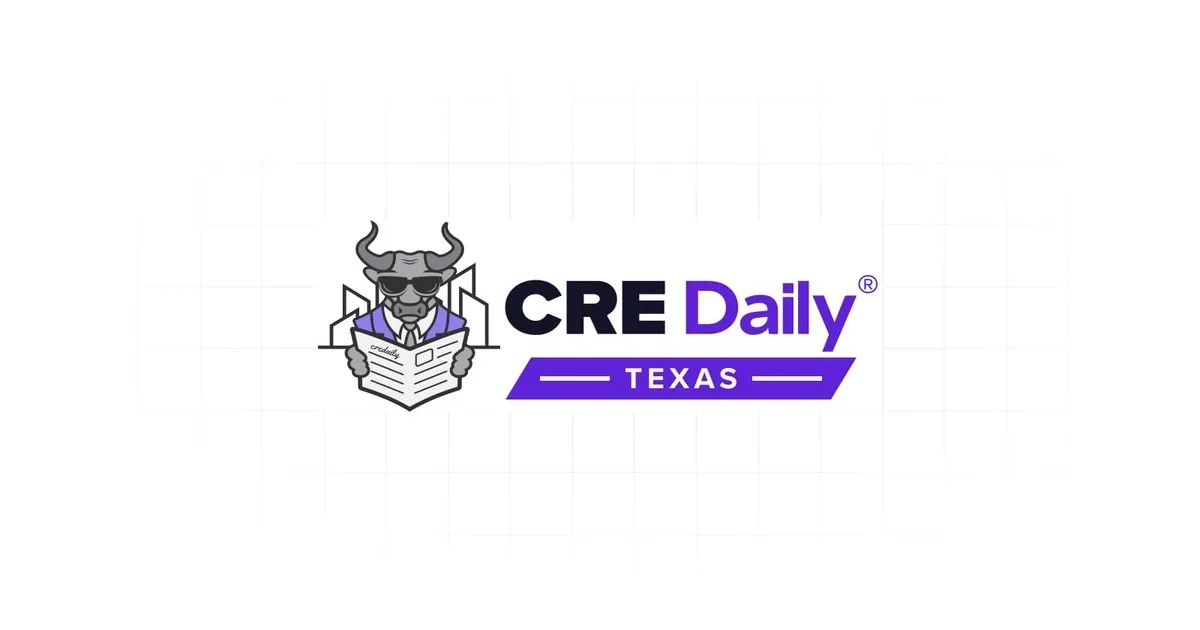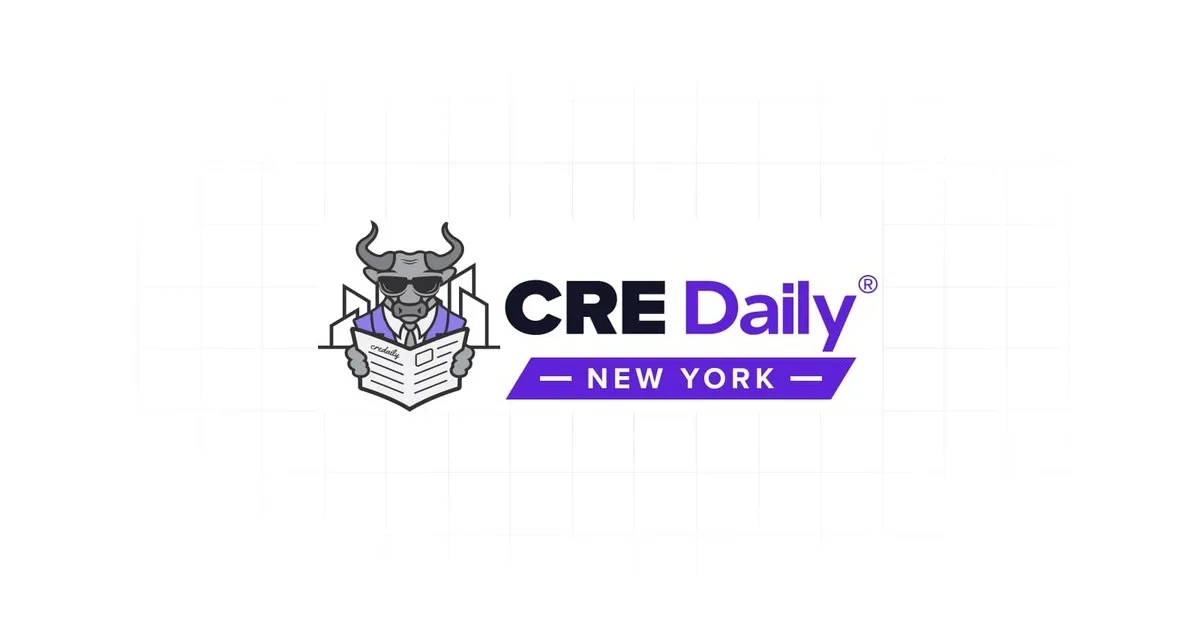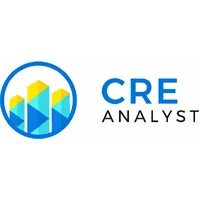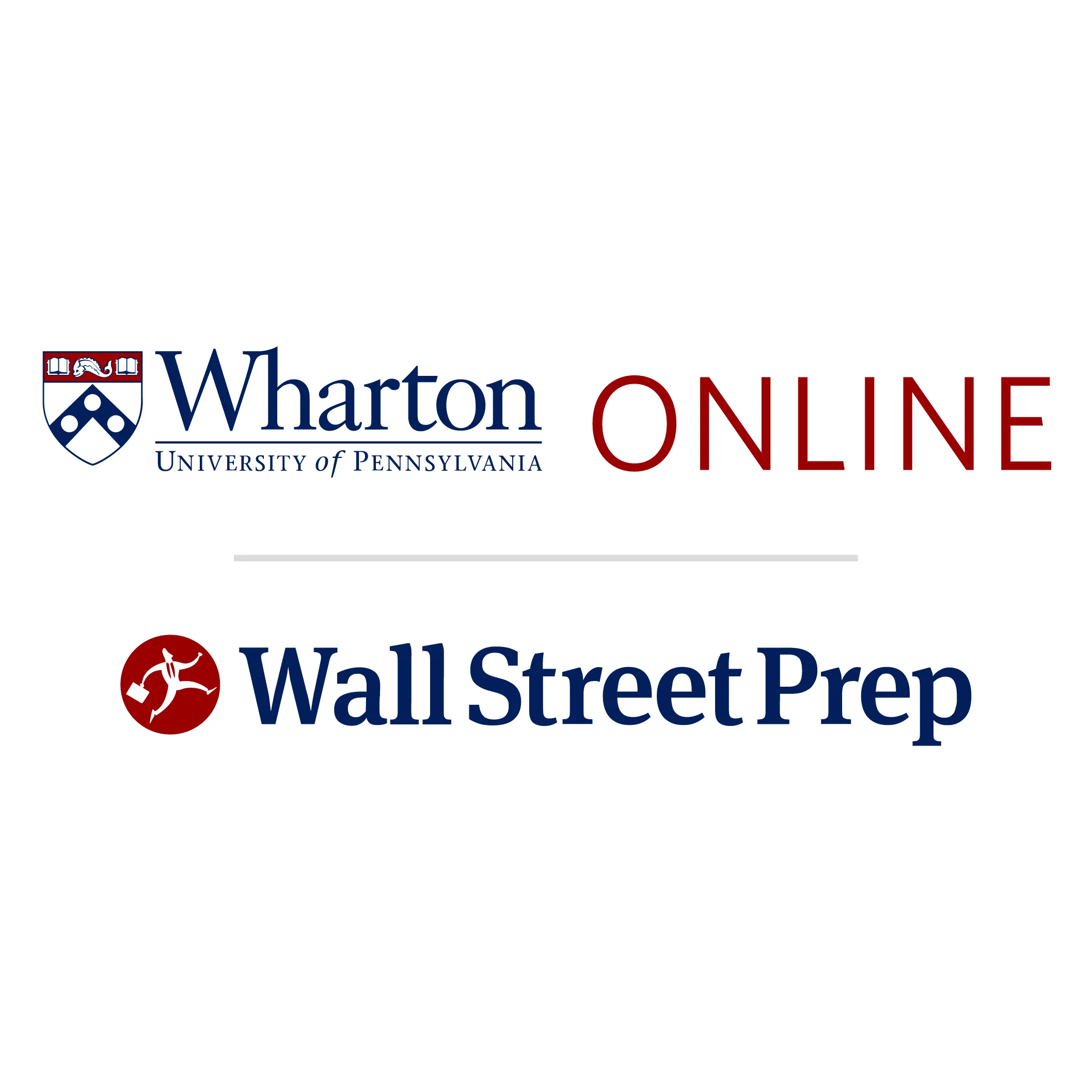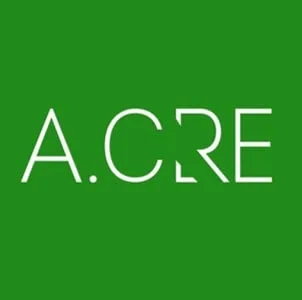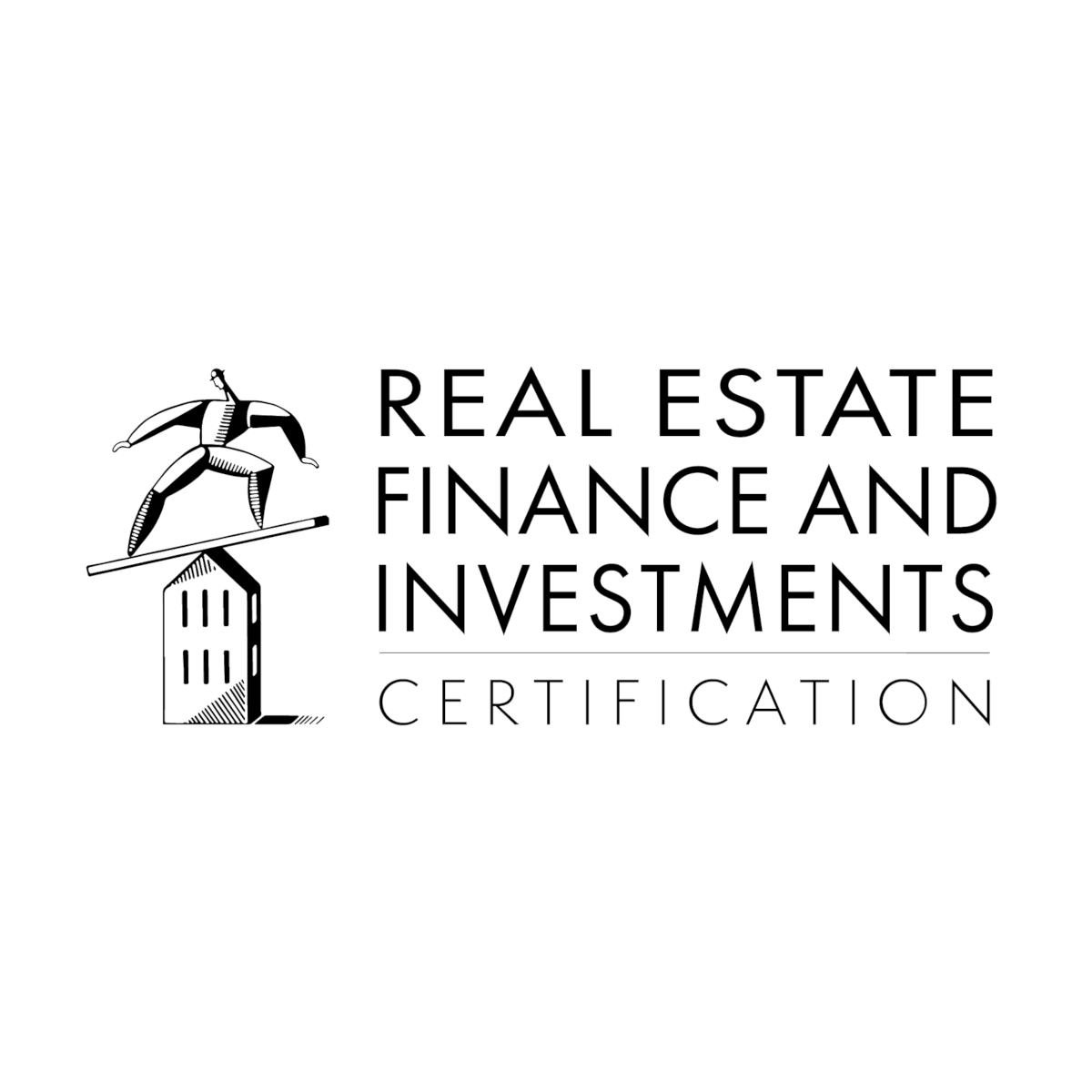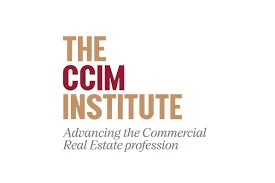From underwriting and capital raising to asset management and development, commercial real estate is a complex industry that rewards those who invest in their education. The right course can help you break into the field, advance your career, or sharpen a specific skillset—without the time or cost of a traditional MBA.
We’ve compiled this guide to highlight the most useful, practical, and respected CRE education programs in the market today. Whether you’re seeking hands-on modeling experience, investor communication strategies, or a broader understanding of CRE deal flow, there’s something here for you.
Format & Duration
On-demand; self-paced
8-week, live Zoom + assignments
8 weeks, ~10 hrs/week; self-paced + office hours
Mix of on-demand + live; 8 courses (4 sessions each)
On-demand; typically 8–12 weeks
Self-paced, 8-week cohort, or custom coaching
10 weeks; in-person + online, ~15 hrs/week
Flexible, six courses over up to 3 years
On-demand + live Zoom; flexible
Core + electives; classroom/online; multi-course
6–8 weeks, cohort-based online
Focus Areas
Multifamily, syndication, 1031 exchanges, branding, sector-specific modules
Underwriting, modeling, acquisitions, debt, JV structures, ARGUS
Full deal lifecycle, institutional modeling, JV waterfalls, capstone case study
Lending, borrower credit, multifamily/office/retail underwriting, valuations, inspections
Case-based financial modeling; advanced modules in waterfalls, dev cash flows, debt, portfolio
Comprehensive finance & investment analysis; Excel integration; based on Linneman textbook
Brokerage, underwriting, management, lending, insurance
Financial analysis, modeling, REITs, PE, taxation, and global investment
Development, ESG, PPPs, housing, finance, Excel
Investment analysis, market analysis, user decisions, and ethics
Investment analysis, development, financial analytics, ESG, data science
Networking/Support
Instructor-led video modules
Mentorship, small group coaching, and alumni network
Wharton faculty + WSP instructors, global alumni network
MBA Education support, instructor networking
Instructor Q&A, networking features, AMA recordings
Tutoring options with Bruce Kirsch, office hours, and alumni network
Assigned mentorship, networking with local firms, and job pathways
University-level instruction, SPS career services
ULI membership community, peer learning
Global CCIM member network, instructor support
MIT faculty, industry guest experts, program advisors
Pricing
$49-$999
$5,999 ($50 discount available with code CREDaily)
$4,800
~$599/course
$697-$1,497
$1,999-$5,499
Varies
$5,000–$5,300
Free for ULI members or ~$250+ for non-members
$1,000–$6,000+
~$3,200–$3,500
Methodology
Each course in this guide was evaluated based on:
- Content Relevance: Does the curriculum reflect current CRE practices?
- Instructor Credibility: Are the teachers experienced professionals or industry educators?
- User Experience: How easy is it to access and complete the content?
- Alumni Outcomes: Are students using what they’ve learned to grow in the field?
- Pricing & Value: Is the course worth the investment in time and money?
CRE MBA
CRE MBA is designed as a one-stop, MBA-style platform for CRE professionals who want a comprehensive, but affordable, education. Instead of spending two years and six figures on a traditional graduate degree, learners can access a curated suite of on-demand courses led by seasoned practitioners. The program covers the full range of CRE topics—from multifamily underwriting and capital raising to marketing strategies and 1031 exchanges—while incorporating practical modules, such as “Building a CRE Brand on LinkedIn.”
The content is broad but tactical, with classes taught by experienced operators, investors, and developers who focus on actionable skills rather than theory. Participants can go at their own pace, mixing shorter modules (like a 60-minute LinkedIn masterclass) with deep dives into syndication, deal sourcing, and multifamily underwriting. The diversity of course offerings allows learners to tailor the experience to their role.
- Main Features: Multifamily and apartment investing, retail and office trends, industrial/logistics, self-storage, affordable/student housing, capital raising, 1031 exchanges, personal branding
- User Experience: Fully online, flexible video-based modules designed for busy professionals; mix of short lessons and 30+ hour accelerators
- Customer Support: Access to instructors, peer community, and supplementary resources (templates, playbooks)
- Pricing: Starting at $49 for shorter courses; $499–$999 for longer courses and bundles
- Best For: Professionals seeking a wide-ranging, affordable alternative to a traditional MBA
Summary: CRE MBA offers the breadth and credibility of a business school curriculum with the convenience of on-demand delivery. Its value lies in the combination of affordability, flexibility, and industry-relevant topics—making it ideal for professionals who want structured education without having to step away from their careers.
CRE Analyst – Fast Track & ARGUS and Valuation
CRE Analyst offers two complementary programs designed to fast-track careers in commercial real estate finance: the flagship Fast Track Program and the specialized ARGUS and Valuation course. Together, they deliver a comprehensive foundation in underwriting, valuation, and deal mechanics—equipping students with both analytical depth and practical modeling experience.
Fast Track Program:
This eight-week, cohort-based course dives into the mechanics of real estate transactions, covering everything from leases and purchase agreements to DCF and waterfall models. Each week combines live Zoom instruction, case studies, and practical exercises mirroring the pace of real deals. Students engage directly with instructors and industry leaders from firms such as JLL, Stream Realty, and Trammell Crow, with post-course support including alumni meetups and job-prep resources.
ARGUS and Valuation Course:
A companion to Fast Track, this program focuses on mastering ARGUS Enterprise—the industry standard for asset valuation. Through real-world case studies (including properties such as the Empire State Building), students learn to model, interpret, and troubleshoot complex valuations. The course is offered in both cohort-based and self-paced formats, featuring live office hours, instructor feedback, and certification upon completion. Participants gain fluency in discounted cash flow analysis, capital markets frameworks, and ARGUS navigation—skills directly applicable to acquisitions, asset management, and valuation roles.
Main Features:
- Fast Track: Transaction documents, valuation, acquisitions, due diligence, development, pro forma, and waterfall modeling
- ARGUS: DCF fundamentals, ARGUS modeling and outputs, valuation mechanics, and capital markets case studies
User Experience:
8-week live, Zoom-based sessions for Fast Track; 6-week structured or self-paced ARGUS course with office hours and certification
Customer Support:
Small-group coaching, live office hours, alumni network, and lifetime access to materials
Pricing:
- Fast Track: $5,999 ($50 discount available with code CREDaily)
- ARGUS Course: $999 for self-paced; $1,999 for cohort-based ($50 discount available with code CREDaily)
Best For:
Aspiring analysts, interns, and early-career professionals seeking both the financial modeling fundamentals and ARGUS certification often required by institutional employers.
Summary:
CRE Analyst stands out for blending graduate-level instruction with real-world deal execution. The Fast Track program builds broad transactional fluency. At the same time, the ARGUS and Valuation course deepens technical mastery of the industry’s leading valuation software—together creating a complete on-ramp for anyone pursuing an analyst or acquisitions role in commercial real estate.
Wharton and Wall Street Prep
The Real Estate Investing & Analysis Certificate blends Wharton’s investment theory with Wall Street Prep’s institutional modeling to deliver a true “front-office” training experience. It’s designed for early- to mid-career finance and CRE professionals who want to approach deals the way top real estate private equity and investment firms do—grounding decisions in rigorous underwriting, capital structure engineering, and risk analysis. Beyond lectures, the program places a strong emphasis on practical experience: weekly casework, role-playing through a full transaction, and a capstone investment recommendation that integrates sourcing, diligence, modeling, and JV structuring. You also tap a global peer network (40+ countries, 200+ employers) and an alumni community that continues post-program.
- Main Features: Full deal lifecycle and modeling (asset-class primers, valuation frameworks, debt structures & levered cash flows, JV waterfalls & promote design, acquisition vs. development models); macro- and micro-risk analysis; capstone investment case.
- User Experience: 8 weeks, ~8–10 hrs/week; self-paced weekly modules with real-world exercises; office hours and full faculty support; electives to tailor depth by role/interest; closing ceremony + credential.
- Customer Support & Network: Enrollment advisors, weekly office hours, guest speakers from marquee firms, an alumni LinkedIn group (invite-only), local Slack channels, and cross-program networking with peers in PE/IB/HF/FP&A.
- Pricing: $4,800 (or $960/month over 5 months); occasional tuition assistance available; eligible for 65 CPE credits (NASBA).
- Best For: Early/mid-career CRE investors and operators, IB/Capital Markets analysts pivoting into real estate, brokers targeting principal roles, private lenders/credit pros, family offices institutionalizing process, serious career switchers seeking a brand-name credential.
Summary: If you want more than self-study videos, and value a recognizable Wharton Online credential, this certificate delivers a structured, instructor-supported path that mirrors how top shops evaluate deals. Compared to standalone modeling courses, it’s pricier. Still, it adds brand equity, a substantive capstone, and a durable network, making it a strong choice for professionals who want both skills and a signal.
Mortgage Bankers Association
The Mortgage Bankers Association (MBA) is one of the most established names in real estate finance, and its Commercial Real Estate Basics program provides a structured introduction to the lending and investment side of the business. Built around eight targeted online courses, the program is designed for professionals who want to understand the fundamentals of commercial/multifamily real estate finance, underwriting, and loan servicing.
Unlike many entry-level courses, CRE Basics is both flexible and interactive. The introductory module is delivered on demand, while the remaining courses follow a live, instructor-guided format that includes webinars, case studies, quizzes, and final exams. Each course zeroes in on a critical aspect of CRE finance—whether that’s analyzing borrower credit, underwriting multifamily or retail properties, or understanding the role of property inspections and environmental concerns. Graduates walk away with not only a foundation in real estate finance but also practical skills applicable to underwriting and risk evaluation.
- Main Features: Eight online courses covering multifamily, office, and retail underwriting; borrower credit analysis; appraisals; loan servicing; property inspection; and valuation
- User Experience: Mix of self-paced and live online classes, typically four weekly sessions per course; interactive with homework, quizzes, and networking opportunities
- Customer Support: MBA Education staff support, peer interaction through live sessions, and access to Education Advantage subscription options for ongoing learning
- Pricing: ~$599 per course (discounts for MBA members; Education Advantage subscription available)
- Best For: Professionals new to CRE finance, analysts entering the lending/mortgage side of real estate, or those preparing for the Chartered Realty Investor (CRI) Level I exam
Summary: MBA’s CRE Basics is a foundational, finance-focused program that gives new entrants a solid grasp of commercial real estate underwriting and lending. While not as advanced as programs like Wharton x Wall Street Prep or MIT, it’s an excellent starting point for anyone exploring the finance side of the industry—or as a refresher for seasoned professionals looking to formalize their knowledge.
Adventures in CRE Accelerator
The A.CRE Accelerator is one of the most widely respected financial modeling training programs in commercial real estate. Created by Spencer Burton and Michael Belasco—practitioners who have collectively underwritten billions in institutional investments—it’s designed to take learners from novice to deal-ready in a matter of weeks. Unlike generic Excel courses, the Accelerator uses a case-based approach, building models step-by-step in the same sequence you’d encounter them on the job.
Students gain access to the Flagship Core Curriculum, a 17-course sequence that covers the fundamentals of real estate modeling through hands-on practice. Beyond the core, A.CRE offers Specialty Endorsements in advanced areas, such as waterfalls, development cash flows, debt, and portfolio modeling—each with its own corresponding certificate. The program is constantly updated, with recent additions such as an AI in CRE module, exclusive AMA recordings, and networking features that connect students with industry peers. Graduates also walk away with a personal library of 30+ institutional-quality models they can use immediately in their work.
- Main Features: Case-based 17-course core curriculum; specialty endorsements in waterfalls, development, debt, and portfolio modeling; access to 30+ institutional Excel models; new AI in CRE content
- User Experience: On-demand videos with 1-year access (typically completed in 8–12 weeks); interactive case studies; student-instructor Q&A; bonus networking and alumni events
- Customer Support: Personalized support from instructors, live office hours, Slack/AMA sessions, and a global alumni community
- Pricing: $697 (Core), $1,097 (Advanced), $1,497 (Advanced Plus+); payment plans available; 30-day money-back guarantee
- Best For: Analysts, career switchers, and entrepreneurs who want practical, institution-level modeling skills and a library of templates to use on the job
Summary: A.CRE’s Accelerator is one of the most practical and job-focused training programs in CRE. It doesn’t just teach formulas—it mirrors the actual workflows of institutional investment firms. For anyone serious about mastering modeling, impressing employers, or executing their own deals with confidence, it’s a top-tier choice that offers both credibility and immediate ROI.
Real Estate Financial Modeling (REFM)
Founded by Bruce Kirsch, REFM has long been a pioneer in financial modeling for real estate. Its flagship program, the Real Estate Financial Analyst (REFAI®) Certification, was co-developed with Dr. Peter Linneman of Wharton and is widely adopted by universities, private equity firms, and CRE training programs. Unlike short bootcamps, REFAI is a comprehensive, multi-level curriculum built around Real Estate Finance and Investments: Risks and Opportunities—often referred to as the “Blue Bible” of real estate finance.
The program is structured into three formats: Self-Paced, Cohort, and Custom, allowing students to choose between independent study, guided group pacing with office hours, or intensive one-on-one coaching. Participants progress through modules covering valuation, capital structures, Excel-based pro formas, and risk analysis, while also earning intermediate Excel for Real Estate certifications along the way. The learning path is rigorous: passing requires scoring at least 70% on assessments, and completion earns the REFAI designation—a credential that signals real analytical depth.
- Main Features: Comprehensive 12-module curriculum, Excel modeling integration, financial analysis frameworks, ARGUS overview, foundational Linneman/Kirsch textbook
- User Experience: Choice of self-paced, 8-week cohort with live office hours, or custom tutoring; quizzes, exams, and capstone assignments reinforce mastery
- Customer Support: Private coaching options with Bruce Kirsch, group office hours, ongoing updates, and alumni resources
- Pricing: $1,999 (Self-Paced), $3,299 (Cohort), $5,499 (Custom with 10 hours of tutoring); nonprofit, academic, and military discounts available
- Best For: Aspiring or current analysts, associates, and career switchers who want a recognized credential and rigorous grounding in finance and investment strategy
Summary: REFAI is one of the few programs that bridges academia and practice with real credibility. It’s more expensive and demanding than tactical modeling courses, but the certification has signaling power with employers and investors. For professionals who want to prove mastery and add a respected credential to their resume, REFAI offers both rigor and recognition.
Foresite CRE Training Program
The CRE Launch Program, hosted by Foresite Commercial Real Estate and partner firms, is a unique 10-week training initiative designed to attract and develop the next generation of commercial real estate professionals. Unlike self-paced online programs, Launch blends in-person classes, online coursework, assignments, and mentorship to create a holistic learning experience. With campuses in San Antonio, Austin, Houston, Los Angeles, and Miami, the program offers a geographically diverse experience while maintaining small class sizes, capped at 30 students to maximize impact and networking opportunities.
Participants commit 10–15 hours per week, making the program manageable for full-time students or entry-level professionals. The curriculum spans practical skills in property management, brokerage, underwriting, lending, and insurance, while pairing each participant with a mentor. Graduates report that the mentorship and networking components are especially valuable, often leading directly to job offers at firms like NorthMarq and Jefferson Bank. In this way, the program functions less as a course and more as a launchpad into the CRE workforce.
- Main Features: 10-week blended format (in-person + online); mentorship; coursework across CRE functions (leasing, underwriting, lending, management, insurance); networking with industry leaders
- User Experience: Weekly classes plus assignments and mentor meetings; ~15 hours/week; limited to 30 students per cohort for personalized attention
- Customer Support: One-on-one mentorship, instructor access, networking with partner firms, and alumni community support
- Pricing: Varies; application-based (requires resume, cover letter, and LinkedIn profile)
- Best For: Upperclassmen in college, recent graduates, or early-career professionals seeking practical training, industry mentorship, and a fast track to CRE employment
Summary: Foresite’s CRE Launch Program is best viewed as an applied apprenticeship-style experience rather than a traditional classroom course. By combining structured training with mentorship and live deal exposure, it provides not only technical knowledge but also a direct pathway into the CRE industry. For those seeking both skills and connections, it’s one of the most effective “learn by doing” programs available.
NYU Schack Institute of Real Estate
The NYU Schack Institute of Real Estate, part of NYU’s School of Professional Studies, is one of the most recognized names in CRE education. Its Certificate in Real Estate Investment program offers a structured, university-caliber pathway for professionals seeking to sharpen investment and deal analysis skills. Unlike shorter bootcamps, Schack’s program emphasizes depth and breadth: students complete six courses (two required, four electives) over up to three years, allowing them to build both technical expertise and specialized knowledge in areas like REITs, private equity, taxation, or international markets.
Delivered entirely online, the program is designed for working professionals who want the flexibility of part-time study with the credibility of an NYU credential. Courses are taught by a mix of experienced faculty and industry practitioners, ensuring that concepts like pro forma modeling and investment ratios are grounded in real-world practice. The program also provides networking opportunities within NYU’s expansive professional community—a valuable asset in a relationship-driven industry.
- Main Features: Core courses in real estate financial analysis and modeling; electives in REITs, private equity, international investment, taxation, and strategic asset management
- User Experience: 100% online; flexible pace with up to three years to complete six courses; designed for professionals balancing work and study
- Customer Support: Full access to NYU SPS advising, career services, and certificate program staff
- Pricing: $5,000–$5,300 for full certificate (based on current course rates)
- Best For: Career switchers, mid-level professionals, or those seeking a university-backed credential to strengthen their resume
Summary: NYU Schack’s certificate strikes a balance between academic rigor and flexibility. While more expensive and time-intensive than self-paced programs, it offers the prestige of an NYU credential and the ability to customize learning through electives. For those who want structured training and a respected name on their CV, it’s one of the strongest university certificate options in CRE.
Urban Land Institute Learning Hub
The Urban Land Institute (ULI) is one of the most influential global organizations in commercial real estate, and its ULI Learning Hub offers a broad range of online and live courses that reflect this reach. Unlike programs that focus narrowly on modeling or finance, ULI’s curriculum spans development, design, ESG, PPPs, housing, investment, and Excel for real estate professionals. This breadth makes ULI a go-to resource for professionals who want both technical upskilling and big-picture industry insight.
Courses are offered in two formats: on-demand modules, which allow for self-paced learning, and real-time sessions, which feature live Zoom instruction, Q&A, and peer interaction. Many courses are short (a few hours to a few weeks), making them easy to integrate into a busy schedule, while others form part of certificate pathways that provide more structured credentials. Participants consistently highlight the practicality of ULI courses, with testimonials noting their value in career transitions, bridging gaps between professions (like architecture and development), and sharpening pro forma and modeling skills.
- Main Features: Wide range of topics including ESG, development, finance, Excel, PPPs, housing, and sustainability; short courses and certificates; live or self-paced learning
- User Experience: Flexible mix of on-demand and live formats; interactive peer community; easy to fit into a working professional’s schedule
- Customer Support: Course facilitators, ULI staff, and access to ULI’s global professional network
- Pricing: Free for ULI members or ~$250+ for non-members, depending on the course; discounts available with membership
- Best For: Developers, planners, ESG-focused professionals, and career switchers seeking accessible, applied training without the cost or intensity of a degree program
Summary: ULI’s Learning Hub combines affordability, accessibility, and breadth. While it doesn’t offer the prestige of a university credential or the rigor of a designation like CCIM, it provides highly practical courses that reflect today’s most pressing CRE trends. For professionals who want continuous, applied learning—and the networking benefits of ULI membership—it’s an invaluable resource.
CCIM Institute
The CCIM Institute (Certified Commercial Investment Member) is one of the most respected providers of education and credentials in the commercial real estate industry. Earning the CCIM designation signals advanced expertise in investment analysis, market research, and ethics, and is widely recognized by employers, clients, and peers as a benchmark of professional excellence.
The designation requires completion of a rigorous curriculum, including core courses like CI 101: Financial Analysis, CI 102: Market Analysis, CI 103: User Decision Analysis, and CI 104: Investment Analysis, along with elective coursework and documented deal-making experience. Experienced practitioners teach these programs and are available in both classroom and online formats. Beyond the designation track, the Institute also offers continuing education, certificate programs, and skills-based courses at the Robert L. Ward Center, covering topics like crowdfunding, advanced financial analysis, and technology-driven marketing.
What sets CCIM apart is not only the depth of its analytical curriculum but also the power of its network: designees join a global community of more than 13,000 CCIMs across brokerage, investment, lending, and development. The designation is often cited as opening doors to higher-value clients and more complex transactions.
- Main Features: CCIM designation program (CI 101–104), electives, Ward Center short courses, continuing education; CE credits available
- User Experience: In-person and online formats; structured curriculum with exams, case studies, and applied deal analysis
- Customer Support: Access to instructors, student tools, and CCIM’s global member network
- Pricing: $1,000–$6,000+ depending on course load and membership status
- Best For: Brokers, advisors, lenders, and investment professionals seeking an advanced, globally recognized credential that demonstrates mastery of CRE analysis and decision-making
Summary: The CCIM Institute represents the gold standard of professional designation in commercial real estate. While it requires a substantial investment of time and money, the payoff is credibility, advanced skills, and access to a robust global network. For professionals serious about advancing in brokerage, advisory, or investment roles, the CCIM designation is one of the most valuable credentials in the field.
MIT Center for Real Estate
MIT’s Center for Real Estate (CRE), housed within the School of Architecture and Planning, is one of the most prestigious academic institutions in the field. Its online portfolio, developed in partnership with GetSmarter, translates MIT’s research-driven approach into 6–8 week programs accessible to professionals worldwide. Each course blends faculty expertise, industry guest lecturers, and applied assignments designed to sharpen technical and strategic competencies.
The curriculum rotates throughout the year, covering topics that range from core investment analysis to niche, forward-looking subjects such as sustainable development and data-driven decision-making. Whether you’re learning how to underwrite deals, navigate zoning and entitlement processes, or integrate ESG principles into portfolio strategy, MIT’s programs emphasize both rigor and immediate applicability. Completion earns participants a certificate issued by the MIT School of Architecture and Planning—an academic credential that carries significant weight across the industry.
- Main Features: Courses in Commercial Real Estate Analysis & Investment, Real Estate Development: Planning & Process, Real Estate Financial Analytics, Sustainable Real Estate, and Data Science for Real Estate
- User Experience: Cohort-based, 6–8 week online modules with weekly deadlines, interactive casework, and applied assignments
- Customer Support: Program advisors, access to faculty and industry experts, and peer collaboration through structured cohorts
- Pricing: ~$3,200–$3,500 per course (varies by offering)
- Best For: Mid-career professionals and executives looking to formalize their knowledge with an academically rigorous and globally recognized credential
Summary: MIT’s Center for Real Estate offers a prestigious alternative to self-paced training, combining academic depth with practical, real-world frameworks. For professionals ready to invest both time and money, these courses deliver not only advanced knowledge but also the long-term signaling power of an MIT credential.
Conclusion
No matter your role or career stage, investing in your commercial real estate education can pay dividends. Whether you’re building Excel models, raising capital, or managing development projects, the right course can sharpen your edge and accelerate your growth.


